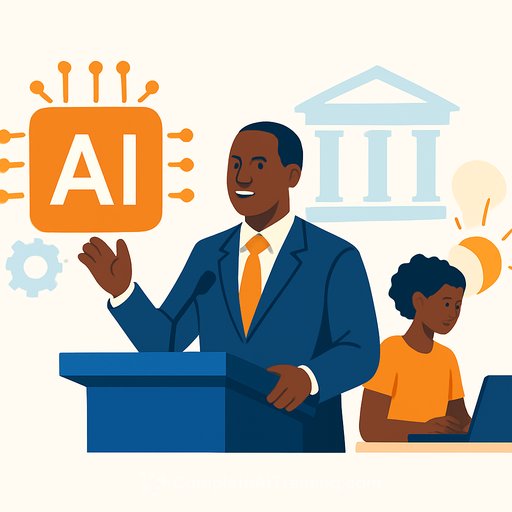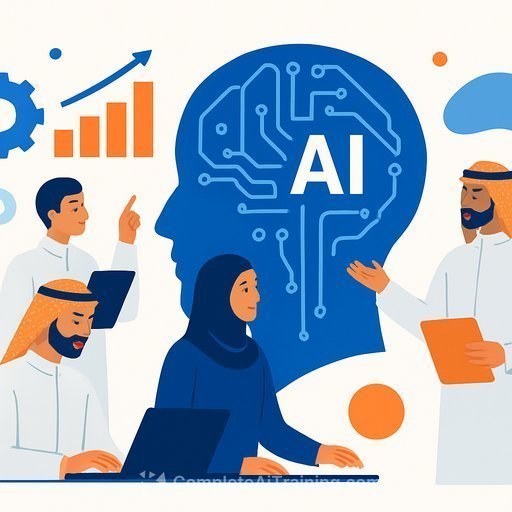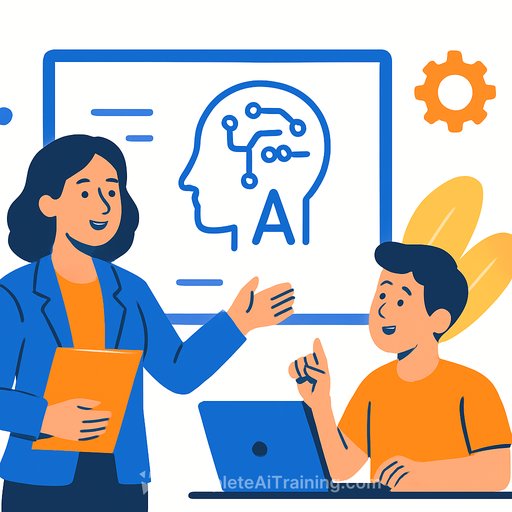Kenya Advances Digital Transformation as Ruto Champions AI in Higher Education
November 18, 2025
Kenyan President William Ruto has asked universities to build AI into teaching, research, and day-to-day operations. He delivered the message on Monday, November 17, while awarding a charter to Gretsa University in Nairobi.
His focus is clear: connect academic theory to practical skills so graduates are ready for entrepreneurship, innovation, and direct contribution to industrial growth. Degrees should create builders, not just exam-takers.
Policy signals you can act on
The Ministry of Education has put a national Open, Distance and e-Learning (ODeL) policy in place to push quality online learning across universities. Adoption of AI and digital tools also supports Kenya's National AI Strategy launched in May, which targets job-ready skills and a stronger role for Kenya in Africa's digital economy.
Government guidance encourages modern curricula with AI-driven tools, advanced programming, and data-focused learning platforms. Students are already benefitting from programs like Google AI Pro across eight African countries.
What this means for university leaders
- Curriculum: Add AI literacy, prompt skills, data analysis, and responsible use modules into core first-year units. Build project-based work with real datasets from local industry and government.
- Teaching: Use AI for formative feedback, content generation checks, and lesson planning support. Keep a human in the loop and document where tools are used.
- Assessment: Shift toward authentic, applied tasks. Use oral defenses, lab demos, and capstones that make simple copy-paste or tool misuse unhelpful.
- Research: Provide shared compute access, data governance standards, and model documentation rules. Prioritize applied projects that serve national priorities.
- Operations: Pilot AI for student support, admissions triage, timetable queries, and registry workflows. Track time saved and quality gains.
- Quality and ethics: Publish clear policies on academic integrity, AI disclosure, data privacy, bias testing, and accessibility.
- Faculty development: Offer short, stackable training for lecturers and TAs. Recognize AI-enabled teaching in promotion criteria.
- Partnerships: Co-design courses with employers and agencies. Secure internships and define shared outcomes up front.
90-day starter plan
- Form a cross-functional AI steering group (academic, IT, QA, legal, student reps) with a weekly cadence.
- Run three pilots: one course redesign, one student support chatbot, one research data workflow. Set clear success metrics.
- Train 50 lecturers in core AI skills and classroom use cases. Create a simple toolkit with approved apps and policies.
- Upgrade your LMS with AI features and logging. Turn on audit trails and consent prompts.
- Publish an AI use policy for students and staff, plus an integrity guide with examples.
- Report outcomes to your senate/council and scale what works next semester.
Student opportunity
With access to programs like Google AI Pro, students can build practical skills fast. Universities can amplify this by running campus "build weeks," supporting AI clubs, and embedding industry-grade capstones in final year.
Avoid common pitfalls
- Privacy and IP: Keep sensitive data off public tools. Prefer institution-managed accounts and data agreements.
- Bias and fairness: Require dataset notes and bias checks for any model used in teaching or research.
- Cost control: Start with small, measurable pilots before committing to large contracts.
- Change fatigue: Communicate early, show quick wins, and provide simple templates staff can copy.
Where to upskill quickly
- AI upskilling paths by job - find role-specific learning for faculty, administrators, and support teams.
- Latest AI courses - short, practical programs you can roll into faculty development this term.
Kenya has set the direction. Universities that move now will graduate learners who can build, test, and ship solutions for the country's economy-and do it with integrity.
Your membership also unlocks:





